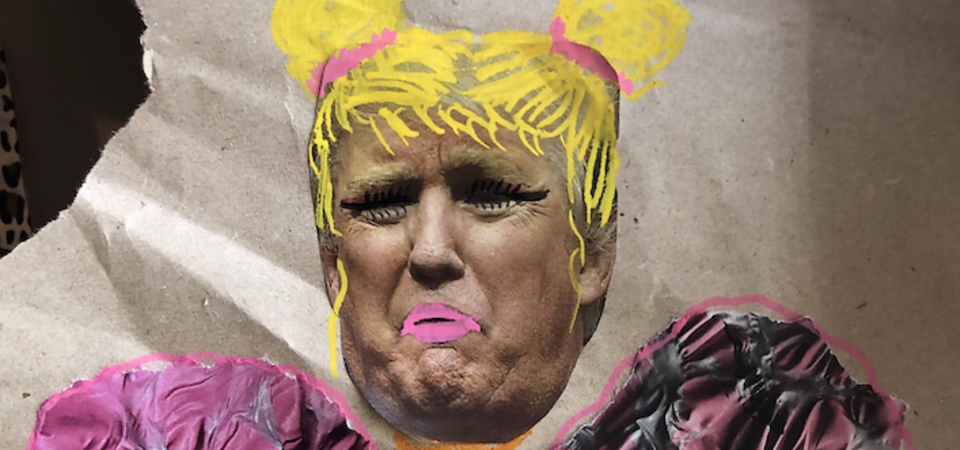The third Plastics Project exhibition includes work from 119 foundation course students from the School of Design and Creative Arts.
Their work is a mix of painting, collage and photography and is tied together by the plastics theme.
The virtual event went live earlier this week ahead of the 2021 G7 summit in Cornwall, which will see world leaders gather to discuss some of the globe’s most pressing challenges, from climate change to the Covid-19 pandemic.
Programme leader Julie Wallace said the aim of the show was to raise awareness of the crisis which saw an estimated 24 million to 34 million tonnes of plastic waste enter the world’s lakes, rivers and oceans last year.
She said: “As educators, we wanted to raise the awareness of the use of plastics, especially single-use, that remains in existence well beyond its period of use, in most cases for 400 years, and damages wildlife, impacts breeding and food cycles – including microplastics in our own food chain – and continues to scar the planet.
“On discussion with students, we realised that many do not have an awareness of this and the direct impact of our own (western) plastic use on the oceans and communities around the globe.
“We felt moved to embed a project to raise awareness amongst Art and Design students who often become influencers and designers in industry, product design, architecture, advertising, textiles and fashion businesses and Art installations.
“These students will go on to make decisions around the use of materials that can have a negative or positive impact on products and the environment.”
Student Issy Spurway used former US President Donald Trump in her piece (pictured above).
She said: “I focused my research onto fast fashion, particularly the ‘throw away culture’ it encourages.
“My inspiration for this was my housemates asking me to fix or alter their clothes. They made me realise sewing is a skill that has become uncommon amongst my peers, especially compared to our grandparent’s generation.
“It’s now considered normal to throw away damaged or unwanted clothes, when 30 years ago they would be repaired or passed on. However, in a survey I created about fast fashion, 58% of participants said they would attempt to fix damaged clothing, then donate them if they could not.
“I focused on the manipulation of plastics to form different textures and combined the physical plastic samples I generated with a political statement that highlights Trump’s harmful attitude towards climate change.”
The Plastics Project was launched in 2019 and was inspired by a BBC2 documentary called Drowning in Plastics, which investigated the impact that trillions of pieces of discarded plastic are having the Earth.
The inaugural body of work was exhibited in London, at the Home Office, in support of the 25-year vision for environmental change issued by the Department of the Environment, Food and Rural Affairs (DEFRA).
To date, some 414 students on the Foundation Studies in Art and Design course at Loughborough have exhibited their work through the project.
ENDS
